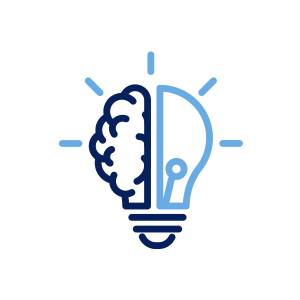What is Biomedical Sciences?
The Biomedical Sciences major provides a comprehensive foundation in the biological and physical sciences, equipping students with the knowledge and skills necessary for various career paths in the healthcare and research sectors. Graduates pursuing the medical school path can leverage their understanding of human biology, physiology, and biochemistry to excel in medical education and training, ultimately becoming physicians, surgeons, or other healthcare professionals dedicated to patient care. Alternatively, those inclined toward biomedical research can contribute to advancing medical knowledge and treatments by engaging in laboratory research, clinical trials, or pharmaceutical development. This major offers a versatile platform for students passionate about improving human health through both clinical practice and scientific discovery.
Awareness

First Year
- Develop attention to detail and ability to meet deadlines
- Develop strong statistical, analytical, and computer skills
- Establish communications skills and a multicultural perspective
- Take AN 100: Introduction to Cultural Anthropology and AN 101: Introduction to Archaeology.
Middle Years
- Take AN 121: Biological Anthropology and Biological Anthropology Lab and AN 200: Language and Culture.
- Take 300-400 level anthropology courses, alongside electives in other social sciences.
- Spend a summer in field school, travel, or studying other cultures.
- Pursue research experience by working on faculty projects, independent studies, or other departmental programs.
Last Year
- Take AN 454: Anthropological Theory.
- Apply to graduate.
Exploration

First Year
- Volunteer at the Archaeology Museum.
Explore more volunteering opportunities at South Serves. - Explore student organizations and
leadership opportunities through Involve South.
Middle Years
- Explore additional training and certifications
related to your career such as learning a foreign
language, double majoring/minoring, or
networking with industry professionals. - Join professional associations such as the
American Association of Biological
Anthropologists or the American Anthropological
Association, and attend conferences.
Last Year
- Develop relationships with Anthropology community partners such as the Poarch Band of Creek Indians or the Archaeological Conservancy.
Preparation

First Year
- Login to Handshake and build profile strength to 75%+.
- Contact Career Development. Meet with a career consultant to discuss career goals
and research fields of specialization in anthropology.
Focus on Career & Self-Development
Middle Years
- Prepare to apply for internships, summer jobs, or volunteer positions.
- Attend career fairs and networking events to become knowledgeable of career opportunities available.
Last Year
- Compile a portfolio of publications, skills, certifications, and ideas.
- Research careers and graduate programs in local, state, federal and international areas six months out from graduation.
- Contact Career Development for future planning assistance.

John Doe, Class of '11
Lorem ipsum dolor sit amet, consectetur adipiscing elit. Etiam tincidunt nisl massa, at convallis nunc aliquam ac. Fusce congue bibendum nisl, sed hendrerit diam pharetra ut. Aenean sit amet neque risus.Aenean congue risus id diam lobortis placerat. Curabitur ut nisl dolor. Maecenas lacinia, leo eu eleifend porttitor, orci nibh pretium ligula, condimentum maximus purus risus ac erat.
What can I do with this major?
- Academic Researcher
- Anthropologist
- Anthropology Professor
- Conservationist
- Historian
- Museum Curator
- Nonprofit Organizations
What skills will I learn?
- Present ideas clearly and concisely
- Design, construct and carry out research projects
- Critical thinking and analysis of complex issues
- Cultural appreciation, competency and
understanding
![]()




